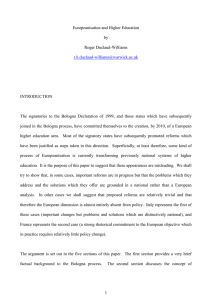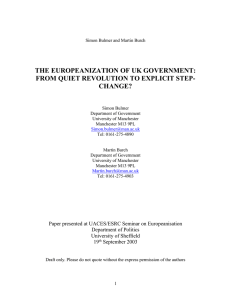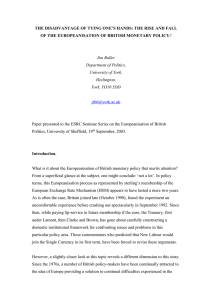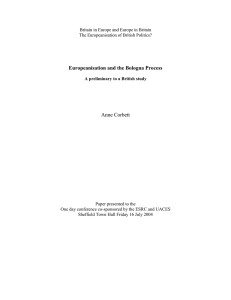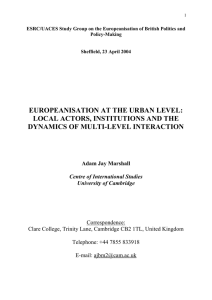Explaining Change in Greek Policy towards Turkey: Balancing, Crusaders and Europeanisation
advertisement
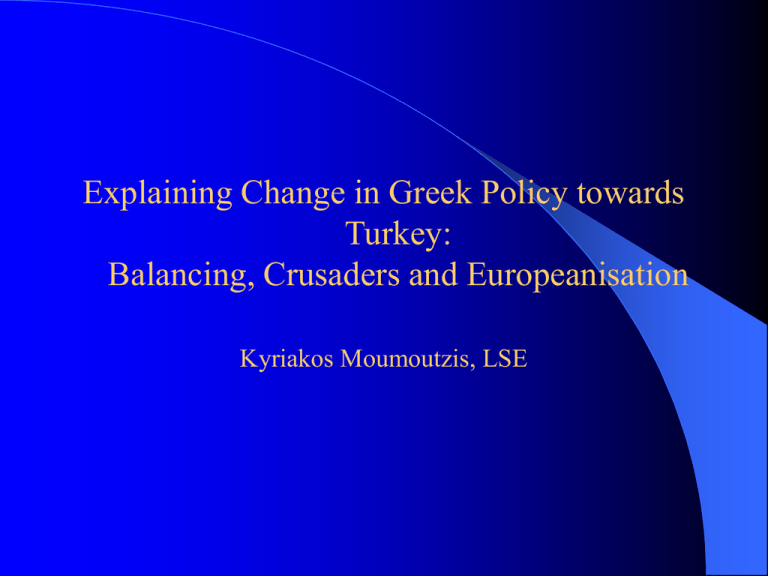
Explaining Change in Greek Policy towards Turkey: Balancing, Crusaders and Europeanisation Kyriakos Moumoutzis, LSE The puzzle Since the mid-1980s, Greece had been systematically trying to prevent the development of EU-Turkey relations 1999 Helsinki European Council: The EU grants Turkey candidate country status Why did the Greek government give its assent to the Turkish candidacy? Explanations: 1) Balancing Problem definition: Turkey as a threat Relevant developments: US policy in the postCold War era and the 1996 Turkish armaments programme have weakened Greece vis a vis Turkey Alternatives: Internal or external balancing Consequences and choice: External balancing can accommodate economic policy goals 2) The crusader Problem definition: The Prime Minister presents his own understanding of the policy problem Relevant developments: The 1996 Imia/Kardak crisis demonstrated policy failure and opened a window for reform for Simitis whose style was that of a crusader Alternatives: ? Consequences and choice: The course of action that furthers the Prime Minister’s vision the most is selected 3) Europeanisation I Problem definition: Turkey as a threat Relevant developments: The 1996 Imia/Kardak crisis demonstrates policy failure and enlargement conditionality offers an alternative Alternatives: The national way or the EU way of doing things Consequences and choice: Given foreign policy failure, established EU practice can secure foreign policy goals most effectively 4) Europeanisation II Problem definition: Turkey as a weak democratic regime Relevant developments: During EU level interactions, Greek policy makers become convinced of the appropriateness of this definition of the problem Alternatives: The national way or the EU way of doing things Consequences and choice: No consideration of consequences, the course of action that is considered appropriate within the EU context is selected Implications for research on Europeanisation Start with the outcomes of the process: foreign policy change Identify other sources of foreign policy change: alternative explanations Process tracing: the emphasis on “the point of intersection” of the determinants of foreign policy allows researchers to establish causality


